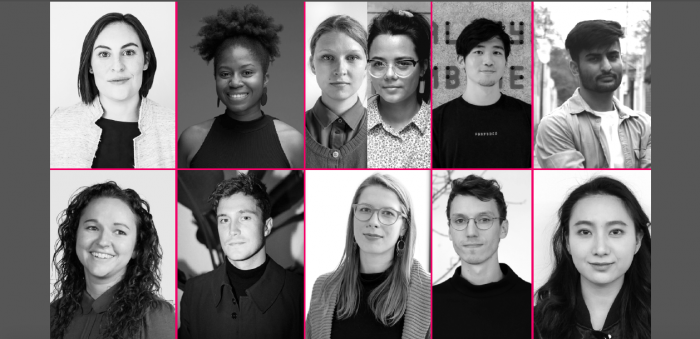Now in its fourth edition, antenna has become a core part of the Dutch Design Week (DDW) offering. The project, which brings to the stage a cohort of the best global graduates, has two distinct aims. Firstly, to find design solutions to the most pressing problems faced by our world and secondly to provide a platform to young designers who are developing ideas that could hugely impact the way we live.
Curated by leading design platform Design Indaba, the 10 antenna participants will present projects that tackle the challenges we face across multiple sectors. Each responds to at least one of the Sustainable Development Goals (SDGs) set out by the United Nations (UN) to transform the world.
The SDGs form a blueprint that has underpinned the whole programme since its inception in 2017. The designers chosen for the event offer alternative solutions to problems of production, food waste, communication, equality, and healthcare. From how to combat food waste, to alleviating the burden of remembering to take chronic medications and building connections between the sighted and visually impaired, antenna gives these innovative thinkers a soapbox from which to ensure that their fresh ideas hit fertile ground.
We are living in a time that runs the risk of being characterised with fear, uncertainty and disconnection. Now more than ever, we seek the optimism that designers help us see our future with. We need proactive thinkers, idealists, and change-makers to forge ahead towards a better, brighter, healthier future for the people and the planet. We look to these designers for a message of hope, and for paths of action that can lead to better societies and a cleaner environment.
As ever, the roster of speakers for antenna takes the pulse of the best designs from the leading schools across the globe. Every year the passion and energy of the designers is inspiring, and 2020’s next generation are set to be no different.
This year’s speakers highlight that design solutions don’t have to be high-tech or futuristic to be effective. Many offer low-tech solutions to contemporary problems by looking to the past for inspiration. Anna Koppmann and Esmée Willemsen use traditional phase changing material to print a curtain that absorbs and releases heat by changing from a solid to liquid state as the room temperature changes. This technique of cooling and heating has been used for centuries.
RCA graduate Ricky Stoch uses simple scratch card technology to help make the lives of patients taking chronic medications easier, ensuring their treatment is as effective as it can be. RISD’s Fengjiao Ge looks at how to reimagine garment waste as a resource, and Coltrane McDowell develops narratives around smell in Nairobi and looks at the potential of the city’s informal distilleries to make essential oils instead of liquor.
Designer and inventor Kosuke Takahashi has created a font that enables visually impaired and sighted people to read from the same page and connect with each other, while Danielle Begnaud’s Brain Bridges – her final project at Pratt University – encourages children to co-design toys with basic objects they already have at home.
New York-based Victoria Ayo has created a platform that aims to provide equal maternity care to black mothers. Birth Reborn draws on the healing power of community connection and ancestral knowledge, made accessible through a thoughtfully designed app.
Solveiga Pakštaitė’s innovative graduation project looks to address the shortfalls of freshness indicators for supermarket food. Mimica is a temperature-responsive label that gives an accurate indication of when food is perishing, preventing huge amounts of food waste caused by over conservative best-before dates.
Canadian designer Xavier Ouellet looks to natural mangrove forests for inspiration for how to prevent coastal erosion by creating floating marine structures that diffuse the current before it hits the shore. South African architecture student Joshil Naran combines social awareness and theory to challenge perceptions of home by exploring interventions for dwellings in a suburb of Johannesburg.
These processes of co-designing, customisation, design democracy, participation, and hacking existing systems are highly important themes in contemporary design.
Following the example of many other design weeks across the world, DDW will be hosted in a purely digital format because of the health pandemic.
The antenna segment of the Dutch Design Week will be broadcast to a global audience via the DDW television. In addition to the presentation for their projects, each designer will be given a virtual ‘room’ on the DDW website where visitors can interact with them and learn more about their impactful projects.
Through its annual global scan of design graduates and many other projects, Design Indaba upholds its commitment to promoting design for social impact, for justice and for the greater good.
antenna 2020 takes place Oct 17-25, 2020.







